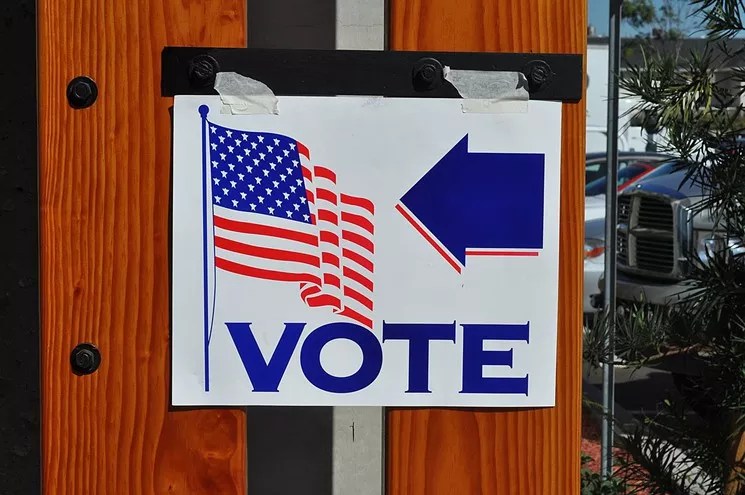
Keith Allison

Audio By Carbonatix
Five voting rights groups have filed a lawsuit in a U.S. district court asking for Texas’ Secretary of State to release documents about a state program they claim “threatens to remove naturalized citizens from the voter rolls.”
The groups include the Campaign Legal Center, the American Civil Liberties Union Foundation of Texas, the Mexican American Legal Defense Fund and Educational Fund, DÄ’MOS and Lawyers’ Committee for Civil Rights Under Law.
In August, Texas Attorney General Ken Paxton’s office said Secretary John Scott had started a search to identify non-citizens on voter rolls and soon “found thousands of registrants for potential removal under this program,” the groups said in a joint press release Tuesday.
But county election officials quickly learned many of those threatened with removal were naturalized citizens who had legal voting rights, the release explained, adding: “Recent reporting suggests that the Secretary’s program sweeps too broadly and endangers the registrations of thousands of eligible citizens.”
In August and October, the five groups requested records from Scott’s office related to what they call the “new voter purge program.” But the state hasn’t produced any documents to date.
“The right to vote is what makes this country a free one and naturalized citizens in Texas, and every U.S. state, should not have to worry about being purged from the voting rolls. We all deserve the chance to cast our ballots freely, safely and equally,” Paul Smith, senior vice president at Campaign Legal Center, said in the press release.
Ashley Harris, an attorney at the ACLU of Texas, said the “public deserves to know why Texas continues to falsely flag U.S. citizens for removal from the voter rolls.”
The groups warned that the removals could have an especially harmful impact on voters of color. Worse still, they say Texas has identified more than 2,300 “potential non-U.S. citizens” while only confirming that 278 of those, in fact, do not have citizenship.
The lawsuit comes amid a more than year-long battle in Texas over voting rights. Since the November 2020 presidential vote, Gov. Greg Abbott, Paxton and other Texas Republicans have claimed that election integrity is under threat in Texas, while rights groups say a slate of harsh new election-related laws amounts to a crackdown on voting rights.
Last fall, Texas launched an audit into the November 2020 elections, despite former President Donald Trump and Republicans carrying a majority statewide. In December, emails obtained by the nonprofit American Oversight revealed that some Texas county election officials were caught flatfooted by the audit.
Last month, Paxton appeared on former Trump strategist Steve Bannon’s podcast and criticized a recent appeals court decision that, in effect, prevents him from prosecuting voter fraud. “We’re done in Texas if anybody can vote,” Paxton said.
In recent years, Paxton and other Texas Republicans have claimed widespread voting fraud around the state. The Brennan Center for Justice watchdog, however, says voting fraud is “very rare.”